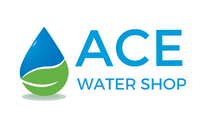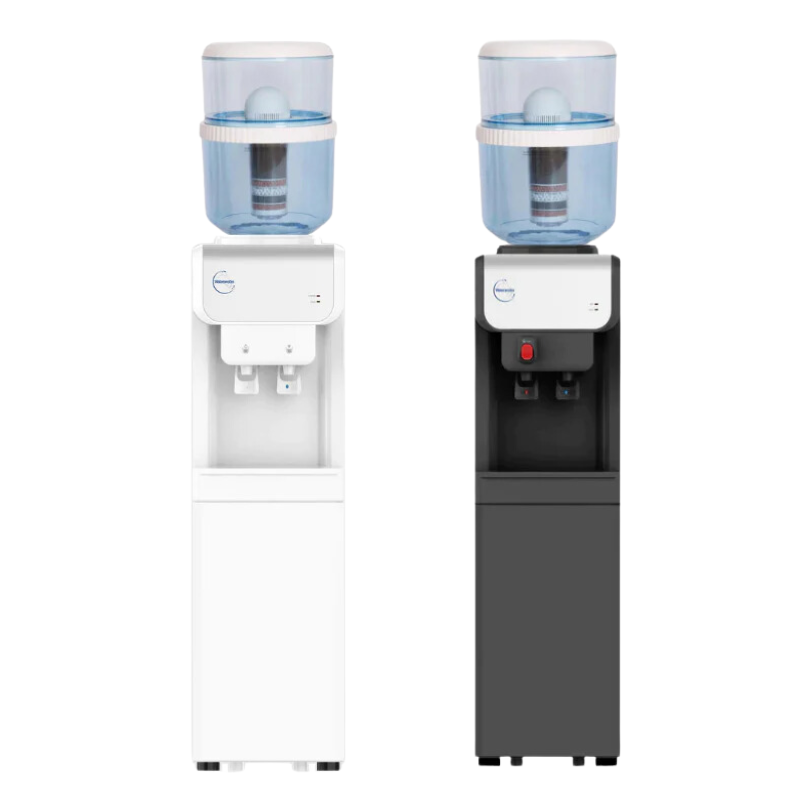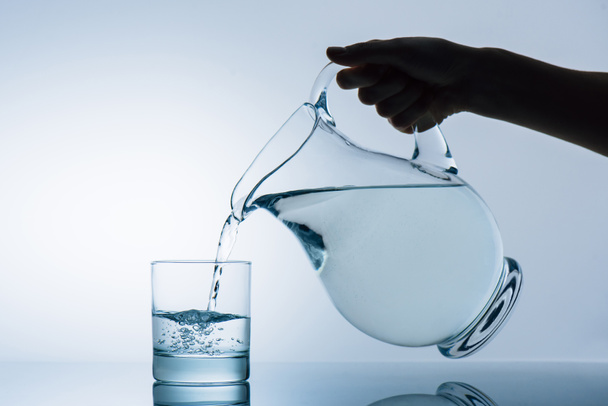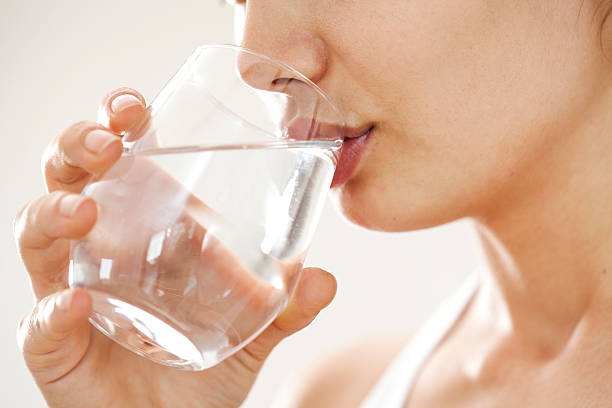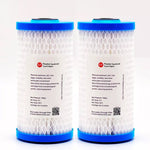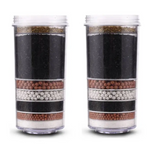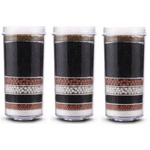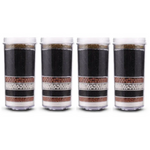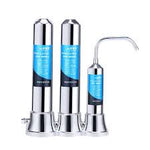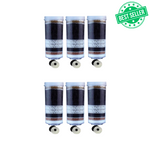You have no items in your shopping cart.
Every state takes pride in its water, but does Brisbane's water supply stack up against the rest of the country? The three main participants in Brisbane's water supply and distribution—South East Queensland Water, Seqwater, and Urban Utilities—will be the subject of our attention.
Where Does the Water in Brisbane Come From?
Nearly 150,000 megaliters (ML) of drinking water are supplied by Seqwater alone to South East Queensland, making it the area's bulk water provider. The 9,500 km of water mains used to transport this drinking water are located in 107 reservoirs.
Brisbane's water service provider, Urban Utilities, provides 136,000 ML of water to its service area, which is more than 50,000 Olympic-sized swimming pools!
Per Mike Foster of Seqwater, the Wivenhoe dam provides 50% of Brisbane's drinking water. This dam has a maximum storage capacity of 1.165 million ML of water!
Seqwater constructed a water grid in the 2000s due to the severe effects of the Millennium drought. In times of need, this enables the transportation of treated water to communities that need it the most.
The Gold Coast desalination plant is the water grid's backup water supply. The plant can produce 133 ML of water daily at maximum capacity.
Recycled water is also used if drought conditions cause dam levels to drop below 40%. It supplies more than a third of the region's water needs when combined with recycled water from the Western Corridor Recycled Water Scheme.
Since the Millennium drought in 2009, Wivenhoe Dam's water levels have not been as low. Its occupancy as of August 1st is 41.8 percent. According to the ABC, current water use per person is 20–25 litres per day, higher than dam managers would like. They may implement water restrictions if the combined water levels of the region's dams fall to 50% fewer by September 2021.
BRISBANE'S WATER TREATMENT FACTS
The Wivenhoe Dam's water is delivered to the Mount Crosby water treatment facility. Brisbane residents receive treated raw water that is safe to drink.
When it gets to the treatment facility, they must clean the water of soil, pollutants, debris, bacteria, and other contaminants. The water must adhere to Australian Drinking Water Guidelines to be deemed safe to consume.
At Mount Crosby, several water treatment steps are followed by a complete treatment procedure.
Coagulation
The raw water is mixed with a coagulant, usually aluminium sulphate. The coagulant and water are combined, and the reaction creates a thicker mass of particles.
The treatment facility tests and adjusts the pH of the water here since it needs to be between 6.8 and 7.2 for the following step.
This phase is crucial in the treatment process since the Mount Crosby filtration plant's raw water is sometimes quite murky.
Flocculation and Sedimentation
A floc is the collection of particles that form after the coagulation process. These groups create heavier masses.
Two sedimentation basins receive the raw water and floc. The floc particle aggregates produce a sludge that settles on the basin floor's bottom as silt.
A waste sludge pool is where the silt is transported by workers who routinely vacuum the floor.
Filtration
The water treatment facility filters the water after removing the muck. The procedure at Mount Crosby begins with dissolved air filtration, in which oxygen-containing water is injected under pressure, forcing bubbles to rise from the ground.
To create a floating sludge blanket, floc particles adhere to these bubbles and float to the surface. Regular removal of this leaves water that has been clarified. This water must go through two processes before it satisfies drinking water quality standards, even though it may look just like the water from our faucet.
Disinfection and pH Correction
Water at the Mount Crosby water treatment facility is cleaned, and its pH is adjusted before it is released into the environment.
- Bacteria, viruses, and other microbes are destroyed by chlorine.
- Lime prevents corrosion or rusting of the pipes during transmission and adjusts the pH for human consumption.
- As a precaution for dental health, fluoride is included.
As they carry the water to Brisbane homes, they pump it to Cameron's Hill reservoirs and add chloramine to stop hazardous bacteria from proliferating. Once it leaves your taps, Brisbane tap water is guaranteed to be completely safe to drink, thanks to this process.
CAN YOU DRINK TAP WATER IN BRISBANE?
Brisbane, Australia's tap water, is suitable for drinking. The water may taste strange to some people. Perhaps your home's water pipes or raw water treatment are to blame for the flavour. You can use a filter jug or put the water in the refrigerator to improve the taste.
Chlorine, a key disinfectant used worldwide, is the subject of the most frequent complaints regarding the taste and odour of tap water. Despite its disagreeable odour, chlorine is a powerful tool in the fight against diseases that are forming in our water supplies. More chlorine may be added in areas with old, corroded pipes to reduce the chance of microbiological contamination entering the system.
Due to the possibility that untreated sewage entering streams and rivers could be contaminated, Queensland Urban Utilities recommended residents exercise caution when near flooding. Multiple water reclamation plants and pumping stations were flooded, resulting in spills. Importantly, Brisbane is part of the Queensland Urban Utilities service area, and the tap water there is still safe to drink. You don't need to boil it.
IS TAP WATER SAFE TO DRINK IN BRISBANE?
Yes, Brisbane's tap water satisfies all Australian Drinking Water Guidelines and is safe to drink. In 2020–21, Urban Utilities only received 209 complaints—80 fewer than before!
Brisbane citizens will have access to pristine, secure drinking water thanks to the efforts of Seqwater and Urban Utilities. Any deviations from these rules are immediately addressed, and the water is tested to determine its safety. Brisbane's water quality will only improve as water authorities future-proof their supplies with recycled water and other alternative water sources.
Installing a water filter will guarantee that your water is clean if your concerns about Brisbane's tap water persist. As an alternative, you can use tap water filled up in a water filter bottle as drinking water.
HOW TO TEST WATER IN YOUR BRISBANE HOME
At-home water testing kits provide reliable results whether you're worried about pollutants or chemicals in your well water or the general pH of your municipal water. With this knowledge, you can select the best water filter for your requirements.
Identify Water Source to Test
You'll need a specific testing kit depending on your evaluating water supply. If you want to test the drinking water in your community, a basic kit that includes common toxins like lead and chlorine can do the trick. If you use well water, you'll need a piece of more comprehensive equipment for checking the water quality, including a pesticide screening test.
Pick a Water Quality Testing Process
Most water quality test kits are only meant to be used once. You should also consider if you intend to conduct a professional lab test as a follow-up to an initial home test. The greater accuracy of colour disc kits may be worth the cost because most test strips provide a variety of outcomes rather than a single result.
Decide Water Contaminants to Test
The EPA offers recommendations for how frequently to test your drinking water and a list of risk factors that may cause pollution, even though it does not support any particular home water testing kits. The EPA offers simple-to-use contamination tables for folks who utilise well water so you can compare your findings to acceptable guidelines for safe drinking water. If you use city water, the municipality must frequently make the testing findings available to the public each year to demonstrate the water's safety.
Ensure Result Accuracy
Testing strips are simple to use and read, but acquiring correct results takes a little more work. Follow these recommendations right away if you want your water quality testing kit to be as effective as possible:
TIPS
- Review the instructions.
- Don't open test strips until you are ready.
- First, wash your hands.
- Have a timer on hand.
- Use chilly water.
- Pour with caution.
Planning to seek a second opinion is also beneficial, particularly if your water testing kit reveals alarmingly high amounts. Start with a simple, low-cost kit, such as the ones listed below, and if the findings are alarming, plan on continuing with expert testing at a lab.
FREQUENTLY ASKED QUESTIONS
Where does the water in Brisbane come from?
Even though it all comes from your taps, it comes from various places, such as rivers, dams, desalination plants, dams, bores, barrages, weirs, and more.
So how can I know the tap water in Brisbane is secure?
The Brisbane tap water must adhere to tight requirements set forth by the Queensland government and Australia's federal authorities for aesthetic and safety reasons. One of these rules states that drinking Brisbane tap water for the rest of your life poses no "substantial risk" to your health.
Why is the tap water in Brisbane contaminated?
Even though we all desire clear, crisp water, iron and manganese can cause your tap water to appear discoloured. And if it tastes or smells a little strange, it can be due of:
- Chlorine
- Bacteria
- Parasites
Although it may also result from your home's plumbing, unclean tap water is mostly safe to consume because it has undergone a rigorous coagulation and filtration procedure at the treatment facility.
INSTALLING A WATER FILTER IN BRISBANE
Do you feel reassured? While we certainly hope so, nothing is stopping you from contemplating having a reverse osmosis water filter fitted by a qualified plumber as an additional protective measure for your family's Brisbane drinking water.
Even if there are alternative filters, only the ground-breaking reverse osmosis method ensures that 98 percent of pollutants, chemicals, minerals, and organic nastiness are eliminated from the water that meets your lips.
Ace Water Shop offers different water filtration systems to help you feel assured of your water quality in Brisbane. Check out our complete home filtration, reverse osmosis, multi-stage filters, water coolers, and more.
